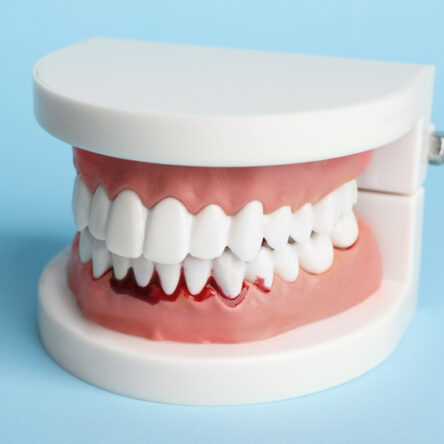Protect Your Decayed Or Damaged Tooth
Enamel is strong, but it doesn’t grow back, so if a tooth is broken on a piece of ice or suffers from extensive decay, it won’t be able to repair itself. That’ll leave it vulnerable to further infection and physical damage. To prevent this, Dr. Martinez can personally design and place a dental crown that doesn’t just repair the tooth; it’ll also enhance its appearance so that you can still smile with confidence. If one of your pearly-whites needs to be fixed, contact Glow Family Dental today to ask about getting a dental crown in Duncanville.
What Is A Dental Crown?
A crown gets its name for the fact that it’s essentially a “cap” that’s placed on top of the tooth; this restores it to its normal shape and size and allows it to function normally. There are many different materials that a crown can be made of. Metal alloys are sometimes used, but they tend to stand out in the mouth. Nowadays, dentists in Duncanville prefer to use ceramics, porcelain or a composite resin; crowns made of these materials resemble natural teeth, and Dr. Martinez can customize them so that they match the rest of your mouth.
Am I A Candidate For Dental Crowns?
Dental crowns are very versatile and can be used in a variety of situations, including:
- Broken, Cracked, Fractured or Severely Decayed Teeth: A crown will let you bite with a damaged tooth without making it worse.
- Large Dental Fillings: If there’s a particularly large cavity that needs to be filled, it could weaken the walls of the teeth. The crown will hold the tooth together.
- Root Canal Therapy: During a root canal, some enamel is removed so that the pulp can be taken out. A crown is placed afterwards.
- Missing Teeth: A missing tooth can be replaced by a dental implant topped by a crown.
- Cosmetic Issues: If a tooth is misshapen or discolored, a crown can cover it up.
Dental Crown Procedure
It usually takes two appointments to place a crown. During the first, Dr. Martinez will examine the tooth, taking X-rays if needed. Then the tooth needs to be reshaped; depending on the situation, some enamel might need to be removed, or filling material might be applied instead. Afterwards, an impression will be taken to be used as reference while creating the crown.
After the restoration is complete (which can take two to three weeks), you’ll come back to our office to have it placed. A local anesthetic might be applied to numb the area around the tooth, and the crown will be cemented in place.
Benefits Of A Dental Crown
- Protecting Your Oral Health: With a dental crown, you can prevent a lot of the pain and discomfort that damaged teeth can cause. You’ll also prevent oral health issues from getting worse, which might lead to needing additional treatment.
- Lasts for Years: While a dental crown will eventually need to be replaced, it can last for 5 to 15 years if you take care of it. Fortunately, this is as simple as brushing and flossing every day, not to mention attending regular dental checkups.
- High Success Rate: Crowns tend to have a much higher success rate than several other methods of restoration.




















